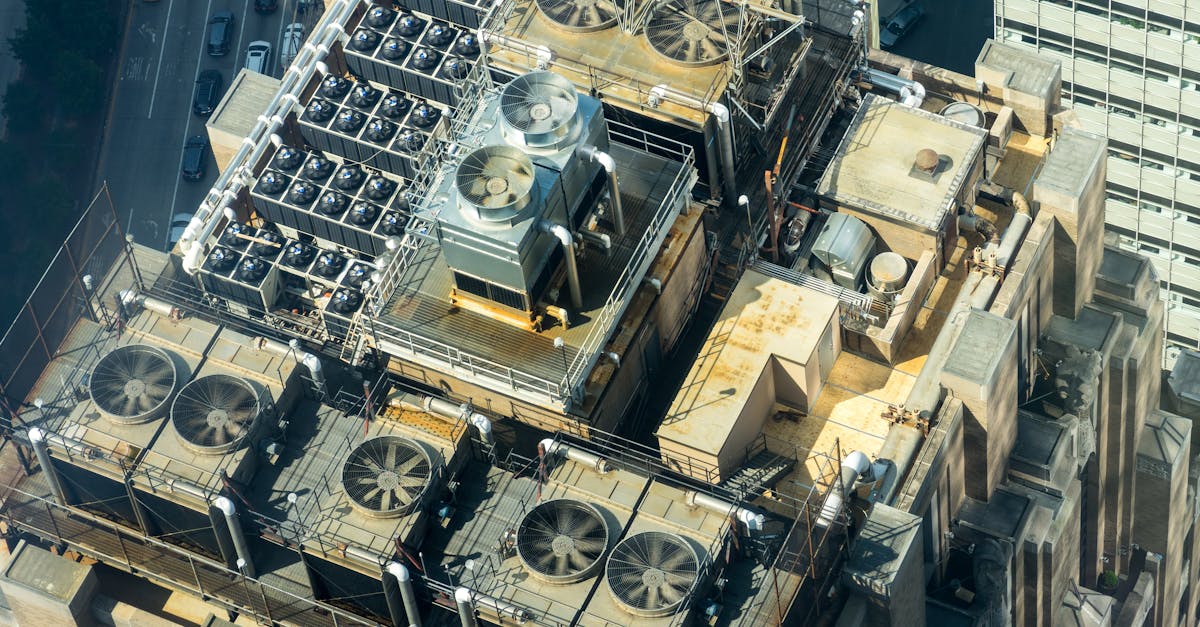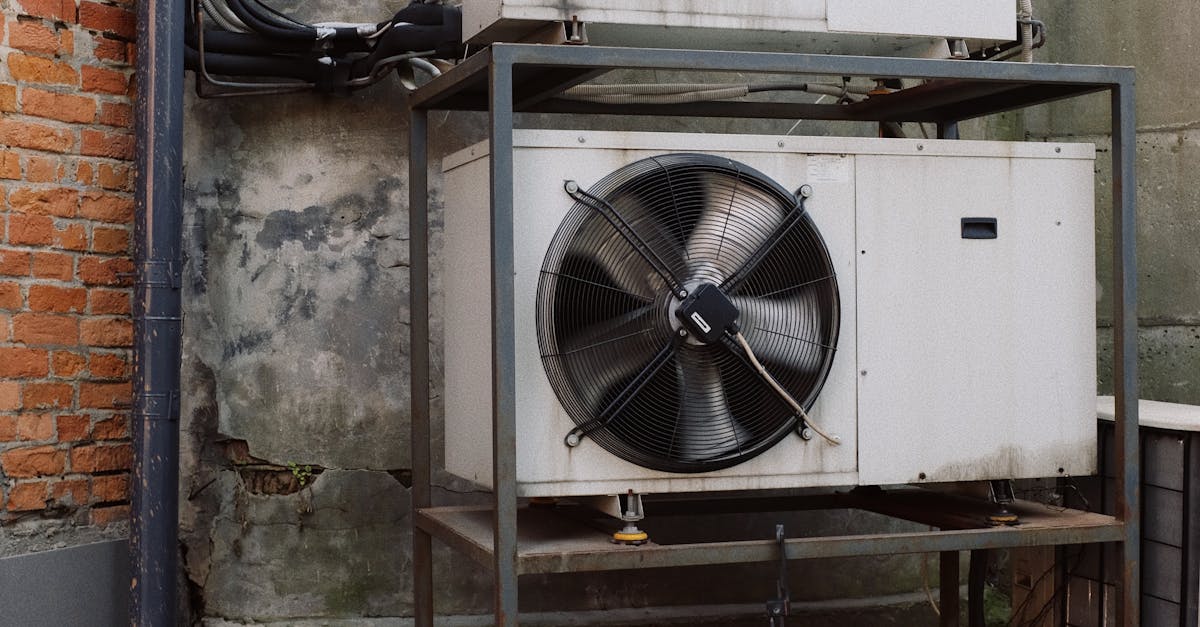
Maintenance and Repair Costs
Regular maintenance is crucial for the longevity and efficiency of commercial HVAC systems. These systems are complex and require specialized knowledge for both routine servicing and unexpected repairs. Over time, wear and tear can lead to more significant issues if not addressed, resulting in costly repairs that can pile up quickly. Having a preventive maintenance plan in place helps mitigate these risks, allowing businesses to budget accordingly and avoid sudden expenses.
Additionally, labor costs associated with maintenance and repairs can vary significantly. Technicians must be trained and certified to work on commercial systems, contributing to higher service rates. In areas like Lakota Village, La Crosse, the demand for skilled HVAC professionals often influences pricing, as availability can fluctuate. Choosing reliable Commercial HVAC Services in Lakota Village, La Crosse, ensures quality work but may also come with a higher price tag for expertise.
Importance of Regular Servicing
Regular servicing is essential for the longevity and efficiency of commercial HVAC systems. Routine maintenance helps identify potential issues before they escalate into significant problems. Furthermore, a well-maintained system operates more efficiently, leading to lower energy consumption and reduced utility bills. Business owners should prioritize this aspect to avoid costly repairs and ensure optimal performance throughout the year.
In locations like College Park and La Crosse, where seasonal temperature fluctuations are common, the importance of regular servicing becomes even more pronounced. With the varying demands placed on HVAC systems throughout the year, scheduling consistent check-ups can help maintain reliability and comfort. Commercial HVAC Services in College Park, La Crosse, provide tailored maintenance plans that cater to specific operational needs, ensuring that systems remain in peak condition regardless of external conditions.
Energy Efficiency Standards
Energy efficiency standards play a crucial role in determining the cost of commercial HVAC systems. These standards are established to ensure that heating, ventilation, and air conditioning systems not only perform effectively but also minimize energy consumption. Compliance with these standards often requires investing in advanced technology and components that may carry a higher upfront cost. Systems designed to meet or exceed energy efficiency benchmarks typically offer long-term savings by reducing utility bills, making them a more sustainable choice for business owners.
In regions such as Cold Springs, La Crosse, businesses often seek commercial HVAC services that adhere to energy efficiency standards. Local regulations may further complicate the selection process, as HVAC solutions must align with both state and federal requirements. The importance of quality installation and maintenance cannot be overstated, as improperly installed systems can lead to inefficiencies. As companies strive to balance operational costs and environmental responsibilities, investing in compliant commercial HVAC systems becomes essential for maintaining both profitability and regulatory adherence.
Compliance with Regulatory Requirements
Compliance with regulatory requirements plays a significant role in the cost of commercial HVAC systems. Businesses must navigate a complex landscape of federal, state, and local regulations that govern air quality, energy efficiency, and environmental impacts. Failure to meet these standards can result in hefty fines and liabilities, prompting companies to invest in advanced systems that adhere to current laws. Regular inspections and certifications add to the overall maintenance budget, further influencing the pricing of HVAC services.
In regions like Cold Springs and La Crosse, commercial HVAC services often prioritize compliance to avoid legal complications and ensure operational efficiency. Service providers frequently invest in training and certified technicians to keep pace with evolving regulations. This commitment not only enhances service quality but also drives up costs, as businesses seek HVAC solutions that minimize risk and align with compliance mandates.
Seasonal Demand Fluctuations
Seasonal demand fluctuations play a significant role in the pricing of commercial HVAC services. During peak seasons, such as summer and winter, the demand for heating and cooling systems escalates. Businesses often require immediate installation or emergency repairs to maintain comfortable environments for employees and customers. This heightened demand can lead to increased prices for both services and equipment, as HVAC companies strive to accommodate the influx of requests.
In areas like Cold Springs and La Crosse, the weather patterns heavily influence these fluctuations. Local HVAC providers often face spikes in requests when temperatures reach extreme highs or lows. As a result, the pricing structure can vary significantly depending on the time of year. Commercial HVAC Services in Cold Springs, La Crosse, may see a surge in bookings as businesses prepare for seasonal changes, reflecting the broader trends driven by local climate conditions.
How Time of Year Affects Pricing
Seasonal demand fluctuations can significantly impact the pricing of commercial HVAC services. During peak seasons, such as summer and winter, the demand for heating and cooling systems often spikes as businesses strive to maintain comfortable environments for employees and customers. This increased demand can lead to higher labor costs, as contractors may need to hire additional staff or pay overtime rates. Consequently, business owners seeking timely repairs or installations during these high-demand periods might find themselves facing inflated prices.
Location also plays a crucial role in pricing dynamics. In areas like Edgewood Place Historic District in La Crosse, where temperatures can vary widely between seasons, local HVAC service providers often adjust their rates based on the prevailing weather conditions. This adjustment ensures that they can effectively manage the workload while meeting the needs of clients. As a result, businesses may want to consider scheduling maintenance or repairs during the shoulder seasons to avoid premium pricing associated with peak demands.
FAQS
What factors contribute to the high cost of commercial HVAC systems?
The high cost of commercial HVAC systems is influenced by various factors including maintenance and repair costs, energy efficiency standards, compliance with regulatory requirements, and seasonal demand fluctuations.
How does regular servicing impact the overall cost of commercial HVAC?
Regular servicing helps to maintain HVAC efficiency and prolongs the lifespan of the system, potentially reducing long-term maintenance and repair costs. Neglecting regular service can lead to more expensive issues down the line.
Are there specific energy efficiency standards that commercial HVAC systems must meet?
Yes, commercial HVAC systems must comply with various energy efficiency standards set by federal and state regulations, which can increase initial costs but ultimately lead to savings on energy bills.
How do seasonal demand fluctuations affect the pricing of commercial HVAC services?
Pricing can vary based on seasonal demand; for instance, during peak seasons like summer or winter, demand for HVAC services may increase, leading to higher prices for installation, repairs, and servicing.
Can the initial investment in a commercial HVAC system lead to long-term savings?
Yes, while the initial investment may be high, energy-efficient systems can lead to significant long-term savings through reduced energy bills and lower maintenance costs, making them a worthwhile investment over time.
